Sixth International Translation Conference Convenes at An-Najah to Discuss “The Role of Translation in Civilization Dialogue”
The Sixth International Translation Conference was held from 30 September to 4 October 2013 at An-Najah National University. This year’s discussion was on “The Role of Translation in Civilization Dialogue.”
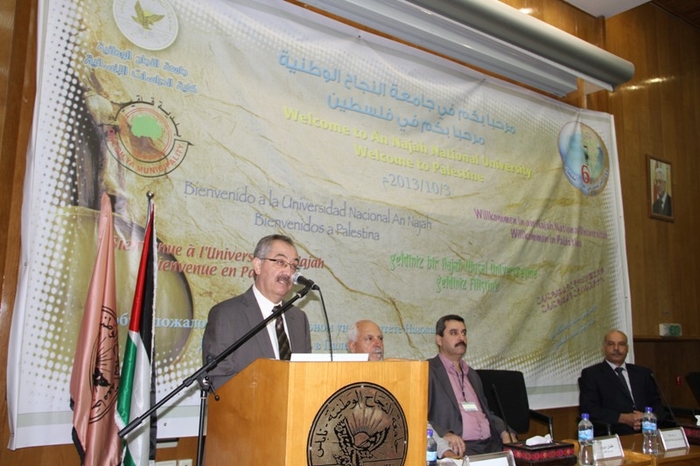
The conference focused on several main themes. Firstly, attendees examined the importance of cultural exchange trips in acculturation. The conference also evaluated the Orientalists’ efforts in translation and their motivating objectives. Additionally, the participants studied scientific missions and their cultural role between nations. Finally, the conference discussed the role of diplomatic missions in strengthening the relationships between nations, especially the role of commercial consuls during the Ottoman era.
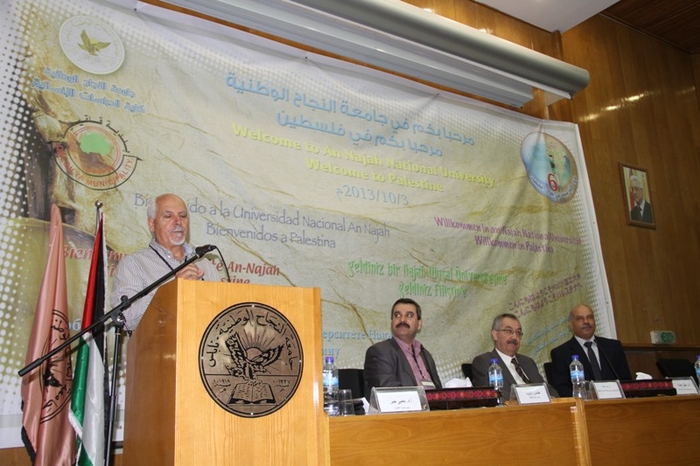
Conference attendees recommended intensifying international efforts to spread the humanitarian principles of freedom and justice between nations. They also recommended mobilizing translation between different languages, facilitating communication between nations, and focusing in future conferences on the role of tourism in achieving what translation has failed to achieve.
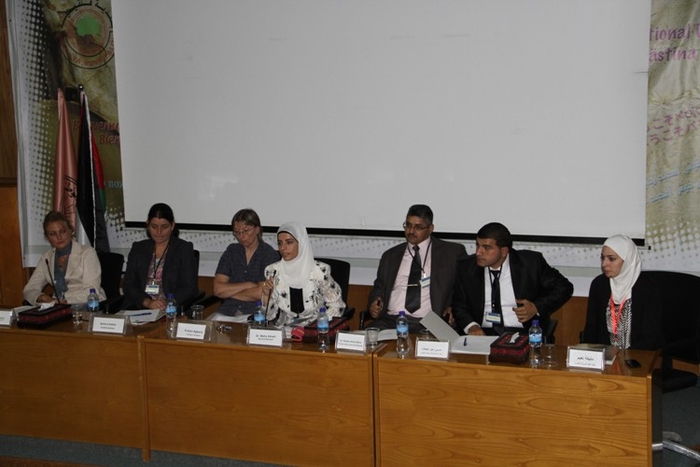
Dr. Yahya Jaber welcomed the attendees on behalf of the organizing committee and thanked Dr. Maher Natsheh for supporting the conference.
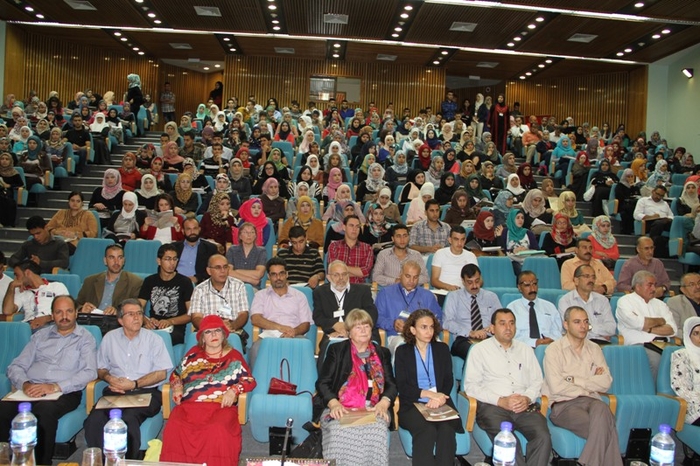
Dr. Maher Natsheh then introduced the conference: “Established five years ago, this conference is a part of the university that concerns all fields of study. Translation enables cultural and intellectual interaction between nations. Even though they are diverse in origin, race, and nationality, nations meet together to exchange ideas. This produces human progress, without fanaticism, because translation is a source of creativity and the convergence of cultures. Because of this, the Arabs and Muslims in the great era of prosperity were very interested in translation. They translated the works of other nations and civilizations into Arabic to benefit from their experiences and knowledge, and so they managed to establish the Arab Islamic Civilization, one of the most remarkable civilizations in history”.

Dr. Natsheh added that in recent years interest in translation has increased in various fields because translation strengthens cooperation and understanding between nations and mitigates isolation and hatred. Translation joins together the efforts of humans all around the world to reduce human shortcomings and bad behavior.
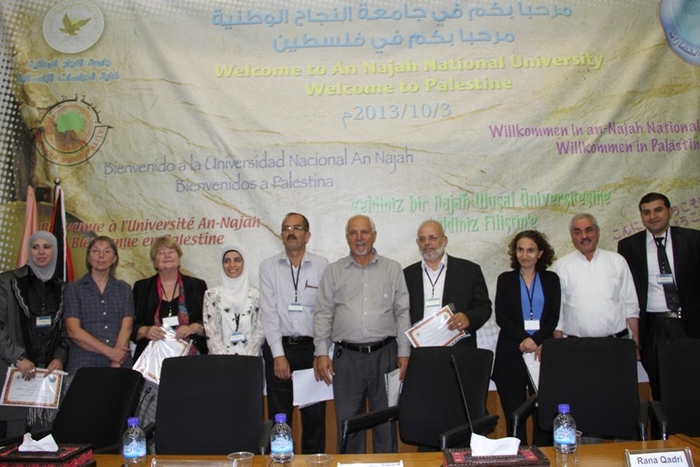
Dr. Khalil Odeh demonstrated that without translation nations would have remained varied and separated. In translation, everyone gives and takes, benefiting from each another. Greek philosophy and wisdom moved from one generation to another through translation. In the same way Al Khwarizmi’s algebra, Abu Hayyan’s chemistry, and Ibn Al Haytham’s optics passed to European readers. Translation fills the gaps between nations and builds bridges of understanding and cultural exchange in a world that is today governed by knowledge and information.
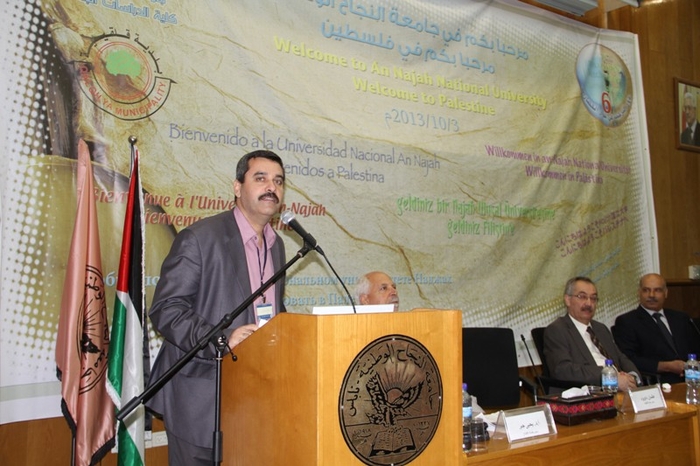
The conference was organized by the Faculty of Humanities at An-Najah National University. Researchers and scholars from Germany, Canada, and Russia participated in the sessions, but others from Iran, Iraq, India, and other counties were prevented from direct participation due to the present circumstances, along with a number of Palestinian academics.



